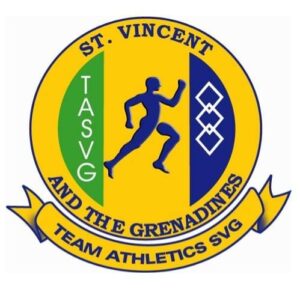Sport’s survival capacity
Since the onset of the Covid-19 pandemic more than a year ago, we have had all aspects of life in society experience untold challenges.
Parents have been at their wit’s end trying to cope at once with the uncertainty regarding whether they are working from home, at the workplace or are joining the ranks of the unemployed.
Parents have also been concerned about their children and their lengthy absence from face-to-face interaction with teachers and their peers in the classroom.
Just about everyone in society has somehow been impacted by the pandemic even though many have not caught the virus, such has been the extensive reach across the globe.
As with most viruses, the health of every individual plays a major role in their capacity to be resilient in the face of the pandemic. So it is that many took to exercising and healthy living as the pandemic raged.
In St Vincent and the Grenadines, before the ash-fall from the volcanic eruption, there was a significant increase in the number of persons engaging in daily exercise. One would hope that this continues beyond the pandemic allowing for a fully active lifestyle amongst the Vincentian populace.
Physical activity and sport are twin disciplines of major importance to individual well-being. They are useful habits for anyone’s arsenal in the fight against illness.
Sport’s survival
Sport is a major form of entertainment to audiences around the world even as it served the individual athlete in his/her overall well-being.
Throughout the pandemic, different sporting organisations have been trying to work with health authorities to find novel ways of facilitating sports training and competition.
The NBA
In the USA, in the midst of the raging pandemic, the NBA created a bubble for the annual playoffs in Orlando, that enabled teams to perform at their peak in the world’s most amazing basketball spectacle.
For sure, the administrators of the NBA knew the importance of the completion of the annual tournament to their pockets. But importantly, they knew its importance to the players for whom it is their source of employment and the millions of fans, globally, for whom the entertainment meant so much as they were experiencing different levels of quarantine and other restrictions on their daily movement.
The absence of fans in the arenas was never a problem in so far as the major income generated by the games come from media rights.
The administrators of the NBA utilised their resources to ensure that the health authorities were on board with them every step of the way to safeguard the players. This engagement was a template for other sporting organisations across the world.
Football
Football remains the world’s most popular sport and it is no surprise that like the NBA, it did not take long for the authorities around the world found ways to have the several competitions return in the face of the pandemic.
The international governing body for the sport, FIFA, wasted little time in ensuring that its slew of competitions were up and running, albeit characterised by the strict application of established health protocols.
The FIFA World Cup preliminaries have re-started around the globe and the most lucrative leagues have been able to complete their schedules, however, they have been modified.
Many Vincentians joined the rest of the world in closely following and enjoying the intensity and appeal of European football. After all, the competitions make for much debate on the merits and demerits of players, managers, coaches and referees in almost every game played.
Like so many English and European football fans, Vincentian football aficionados vented their emotions in response to the announcement of the establishment of a European Super League, decrying the greed and lack of vision of the consortium of owners.
Here at home, after what appeared to have been an inordinately long wait and intense negotiations, the SVG Football Federation (SVGFF) was able to receive permission to organise a training camp for the national team before their international engagement.
Vincy Heat competed in Curacao, Hope International are in the Dominican Republic while the youths are headed to Grenada.
For the average Vincentian sports enthusiast, the fact that our representative national teams, at whatever level, are engaged in active competition is of enough significance to make a difference in how they confront life in the face of a pandemic.
Cricket
In the midst of the pandemic, the West Indies cricket team travelled to compete in the UK and New Zealand before coming to play against Sri Lanka in the Caribbean. In each instance, the International Cricket Council (ICC) followed the example of the NBA. They created bubbles for the participating teams, seeking to protect the players, umpires and all associated with the conduct of the event.
As was the case with the NBA, the competition arenas were free of patrons.
The cricket example has, however, been going well until of course, the Indian Premier League (IPL) began.
One would have imagined that the IPL, played in India, would always have been a major challenge, especially since it was starting as the country was experiencing a significant spike in the number of cases. Even so, it seems that not enough attention was paid to the duty of care until it was too late, and players engaged in the competition started contracting the virus.
Cricket competitions are currently taking place at the highest level engaging both male and female teams.
Here in St Vincent and the Grenadines, as in several other cricketing nations, the sport is still being played. With new wickets having been laid, the Vincy Premier League (VPL) is in progress, having this time attracted several patrons in stark contrast to last year when spectators and most of the local media were not allowed.
Cricket is a sport played in just about 104 countries, relatively small, but the importance of the game in the Caribbean and our own St Vincent and the Grenadines is particularly important. The decline in attendance of cricket matches in St Vincent and the Grenadines is consistent with what we are witnessing all around the Caribbean with the possible exception of Guyana. That the sport is being played in the region in the midst of the pandemic shows the commitment of the administrators of the sport and the other stakeholders, especially the players.
Of immense importance, of course, is the fact that the shorter version of the sport which continues to prove lucrative for the players and administrators, is also the most entertaining for fans.
The infusion of funds from Indian concerns in the Caribbean Premier League (CPL) is very much something of a ‘life saver’ for the sport in the region. That it will continue through the pandemic may do much to sustain interest, at least amongst players hoping to build sporting careers.
Athletics
Track and Field athletics have been innovative. In 2020, World Athletics, the international federation for the sport, introduced virtual competitions, expending significant resources to have match events amongst the world’s best athletes, located in different parts of the world.
In what was virgin territory, the international athletics family readily took to the virtual competitions and generated immense interest.
This year, there has been renewed interest in the sport of athletics with athletes around the world seeking to gain the qualifying standards for the Olympic Games, the first to be held in the midst of a global pandemic.
In recent weeks we have witnessed the unfolding of the level of preparation that many athletes around the world have been undertaking. Already world records have been broken and several world-leading and personal best performances have been achieved.
The trials of the major athletics nations are due to take place in June.
The Diamond League, the annual highlight of the sport of athletics outside of the World Championships, is about to begin and the world watches with bated breath at what will emerge over the next several weeks.
Motor racing
Motor racing has emerged as a sport of significance for the peoples of the Caribbean once Lewis Hamilton, of Grenadian heritage, took centre stage in Formula 1.
Hamilton has nonetheless brought millions of additional fans to the sport even in the midst of the pandemic as he set a new world record-breaking performances in succession.
Importantly, His commitment to combatting the cause of racism has enabled him to get his team, Mercedes, to change its livery from white to black. He led his fellow drivers to take the knee before races and ensures that his example extends to all of his fans everywhere. In the midst of a pandemic, Lewis Hamilton has persuaded one of the world’s most expensive sport to confront the spectre of systemic racism in a way that other, more popular sports have as yet been unable to do.
Neither the International Olympic Committee (IOC) nor FIFA has yet been able to determine the kind of deliberate strategy that Hamilton, almost single-handedly, has been able to convince his sport and its stakeholders to embrace in the name of humanity, extolling the virtues of the human dignity.
For the love of sport
As people, we often underestimate the power of sport.
While Mandela spoke to the power of sport, we have failed to exercise that power in the best interest of the peoples of the world.
Mandela’s prognosis of the power of sport and what it could have done for South Africa as a nation faltered badly to the extent that today the nation is bitterly divided.
We in the Caribbean boast of West Indies Cricket as a facilitator of regionalism. That is yet to be realised.
What sport has shown us in the face of the dreaded Covid-19 pandemic, however, is that it helps us all in terms of its entertainment value but also, importantly, in the capacity of the human spirit not to be defeated.
Families have been shattered by the significant loss of loved ones. Economies have taken a major hit. Employment figures have collapsed across the globe. Yet, in the midst of it all, the human spirit remains indomitable and nowhere is this more evident than in the world of sport, and this, despite its often caustically abrasive disregard for the athletes who make it possible.



